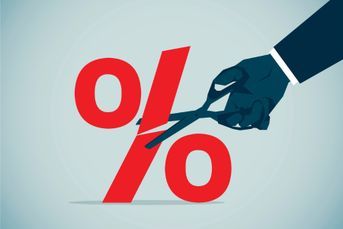Japan’s stimulus news pushes stocks higher
Bank of Japan unexpectedly boosts monetary expansion and equity investors cheer; yen drops sharply.
The yen plunged to a six-year low while stocks jumped with U.S. equity-index futures (SPX) as the Bank of Japan unexpectedly increased its target for monetary stimulus. Gold fell as bonds from Italy to Portugal climbed.
Japan’s currency tumbled 2.3% to 111.77 per dollar by 7:22 a.m. in New York, the weakest since January 2008. The Stoxx Europe 600 Index added 1.4%, Japan’s Topix index jumped the most since June 2013 and Standard & Poor’s 500 Index futures signaled the gauge may rise to a record. Yields on 10-year notes in Italy, Spain, Portugal and Greece slid at least five basis points. The ruble stayed weaker and bonds fell after Russia raised rates more than forecast. Gold slid as much as 2.6% to the lowest price since July 2010.
The Bank of Japan unexpectedly boosted its stimulus, raising its annual target for monetary expansion to 80 trillion yen ($717 billion), up from 60 to 70 trillion yen. An increase was predicted by just three of the 32 analysts surveyed by Bloomberg News. Separately, the country’s public pensions fund increased its target for holdings of foreign shares to 25% from 12% of its portfolio.
“Markets don’t really seem to care about what kind of stimulus we get or where it’s coming from, as long we get something,” said Teis Knuthsen, chief investment officer at Saxo Bank A/S’s private-banking unit. “Central banks are trying to squeeze money into the system and as long as economic growth is good enough, all that money will be going into financial assets. What happened in Japan is very powerful for equities, and it’s really rippling throughout global markets.”
EURO-AREA INFLATION
Investors weighed a report that showed euro-area inflation increased this month for clues about the ECB’s policy stance at its meeting next week. The central bank aims to take inflation closer to 2%, while the rate has stayed below 1% for a year.
BNP Paribas rose 4.1% to 50.46 euros after posting an 11% gain in third-quarter profit that exceeded analysts’ estimates. Net income was 1.5 billion euros ($1.89 billion), up from 1.36 billion euros a year earlier, the lender said. Loan-loss provisions fell 9.2%.
Royal Bank of Scotland Group Plc added 4.4% to 381.5 pence after swinging to a third-quarter profit. The British lender said net income was 896 million pounds ($1.4 billion), beating the average analyst estimate of 582 million pounds. RBS posted a loss of 828 million pounds in the year-earlier period.
International Consolidated Airlines Group SA gained 4.3% to 407.6 pence. The owner of the British Airways and Iberia said full-year earnings will be 550 million euros to 600 million euros more than last year’s 770 million euros. IAG had earlier predicted a gain of at least 500 million euros.
Danone added 2.2% to 53.87 euros after agreeing to buy a 25% stake in Yashili International Holdings Ltd., a Chinese infant milk-formula maker.
Anheuser-Busch InBev NV (ABI) slipped 1% to 86.30 euros after third-quarter profit growth slowed more than analysts had projected because of weakness in Russia and China. The brewer said adjusted earnings before interest, taxes, depreciation and amortization rose 1.3%, down from a 9.5% pace in the second quarter. Analysts had called for 7% growth.
Learn more about reprints and licensing for this article.








